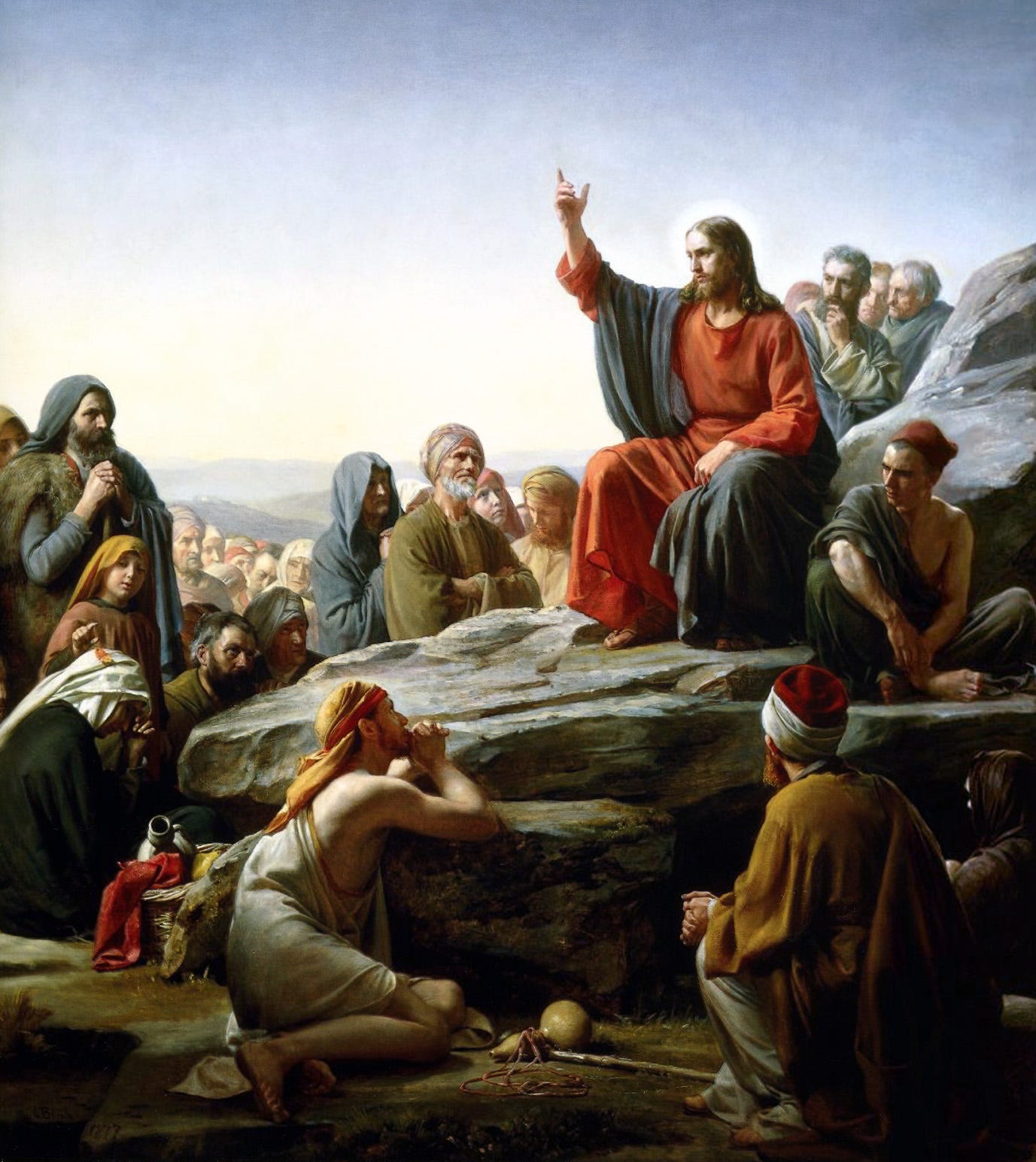The Beatitudes and the Interior Life
Gospel Reflection for September 10, 2025
In today’s Gospel, we hear a familiar part of the Sermon on the Mount, what have come to be called the Beatitudes. The list in St. Luke’s Gospel differs a bit from the traditional one found in Matthew. Today, in Luke, we get four of the eight found in Matthew:
"Blessed are you who are poor, for the Kingdom of God is yours.
Blessed are you who are now hungry, for you will be satisfied.
Blessed are you who are now weeping, for you will laugh.
Blessed are you when people hate you, and when they exclude and insult you, and denounce your name as evil on account of the Son of Man.” Luke 6:20-22
For contrast, St. Matthew records:
“Blessed are the poor in spirit, for theirs is the kingdom of heaven.”
“Blessed are those who mourn, for they shall be comforted.”
“Blessed are the meek, for they shall inherit the earth. “
“Blessed are those who hunger and thirst for righteousness, for they shall be satisfied.”
“Blessed are the merciful, for they shall obtain mercy.”
“Blessed are the pure in heart, for they shall see God.”
“Blessed are the peacemakers, for they shall be called sons of God.”
“Blessed are those who are persecuted for righteousness’ sake, for theirs is the kingdom of heaven. Blessed are you when men revile you and persecute you and utter all kinds of evil against you falsely on my account.” Matthew 5:3-11.
The beauty of these teachings is that they lay out a framework for attaining eternal life.1 I have written constantly on the Interior Life, and I want to connect the beatitudes to the three ages of the interior life. For ease of use, I will follow St. Matthew’s list. As a reminder, the interior life, that is, our spiritual journey toward union with God, is divided into three stages:
The Purgative Way or the Way of the Beginners
The Illuminative Way or the Way of the Proficient
The Unitive Way or the Way of the Perfect
Each of these three stages has one of the Dark Nights as the threshold between them.
The first three beatitudes correspond to the Purgative Way in the spiritual life. Here, we see the virtues of poverty of spirit, meekness, and tears of contrition. These virtues correspond to fleeing from sin, which can be seen as indicative of the purgative way. We are being purged from our attachments to sin and are being oriented to God in a greater way. Thus, we are given more sensible consolations, and it is in the second part of these beatitudes that the consolation, which is indicative of the purgative way, can be seen. The Kingdom of God, the comfort of the mourning, and the inheriting of the earth are all forms of consolation, and they are all movements away from sin.
The next four Beatitudes correspond to the Illuminative way, with two being for the active life and two being for the contemplative life. In the active life of the Illuminative Way, we find those who hunger and thirst for justice and those who impart mercy on their neighbors. In both cases, those who are called to the active life impart two precious virtues of Our Blessed Lord and so show legitimate Charity for their neighbor for the sake of God. We find the next two beatitudes in the contemplative life of the Illuminative Way. These souls most especially possess a pure heart and strive for peace and thus are prepared to see the face of God. Fr. Garrigou-Lagrange speaks of these:
“Then comes those of the contemplation of the mysteries of God: the purity of heart which prepares the soul to see God, and the peace which springs forth from true wisdom.2
Finally, the last of the beatitudes, which is the greatest, corresponds to the Unitive Way, where the soul experiences union with God. This is shown forth and perfected in those who are persecuted for the sake of Our Lord. This is because through that persecution, they are conformed most perfectly to Christ, the Martyr. Garrigou writes:
“Finally, the last and most perfect of the beatitudes unites all the preceding ones in the very midst of persecution endured for justice’s sake. These are the final trials, the condition of sanctity.”3
It should not be lost on us that even in St. Luke’s account, this last one is mentioned since it is the highest.
Just like the Ten Commandments, which are given in a specific and providential order for our moral lives, these beatitudes are given for us in a providential ordering for our Interior Lives. We are meant to follow the path of these teachings in ascending order so that we can ultimately come to union with the Divine. This is our call and lies in the ordinary way of sanctity. All are called to this life, but few attain it as Our Lord tells us:
“For many are called but few are chosen.” Matthew 22:14.
For more from Dr. McGovern, visit his Substack at A Thomist, Dedicated to the Theological tradition of St. Thomas Aquinas. Exploring Thomas' Spiritual Theology and topics in Christology and Mariology.
This topic deserves a longer consideration. Look for a longer article on this topic coming soon.
Reginald Garrigou-Lagrange, The Three Ages of the Interior Life, Vol I., 165.
Ibid.



Another beautiful reflection for the day. Praise God.
Looking forward to a deeper dive into this topic…thank you in advance